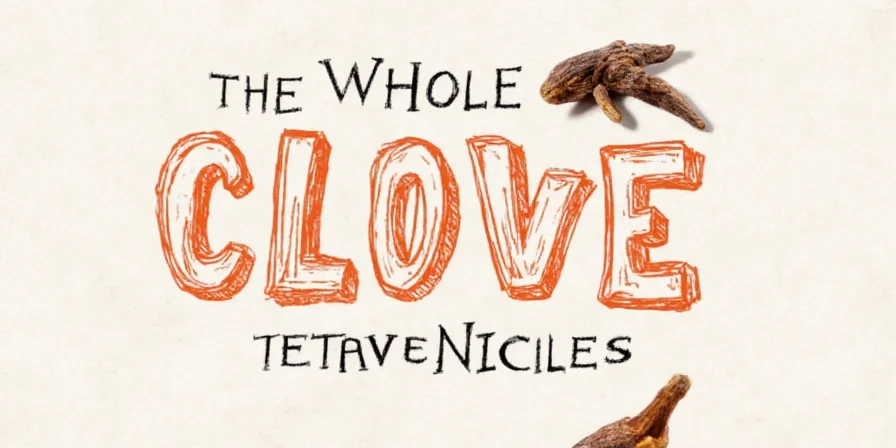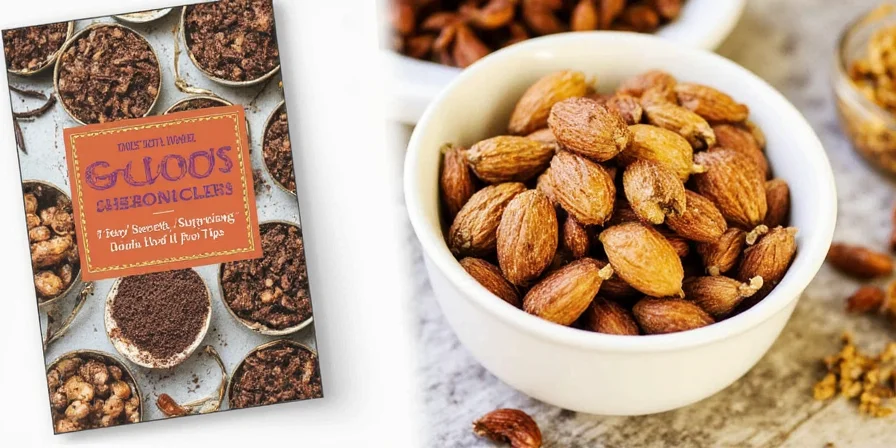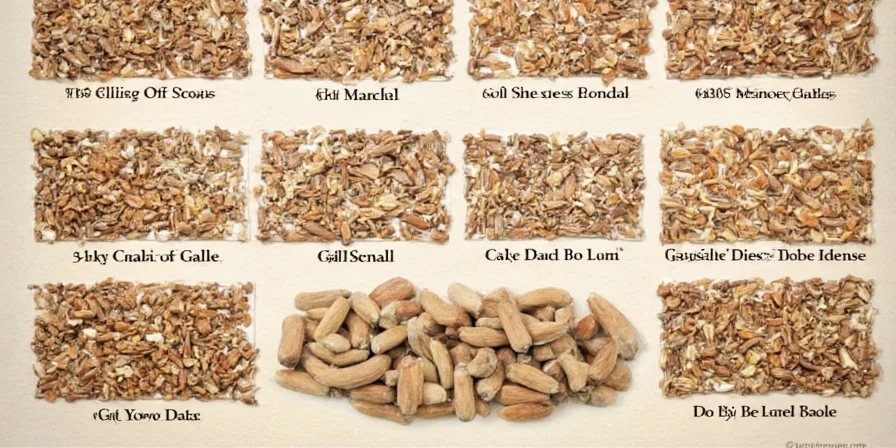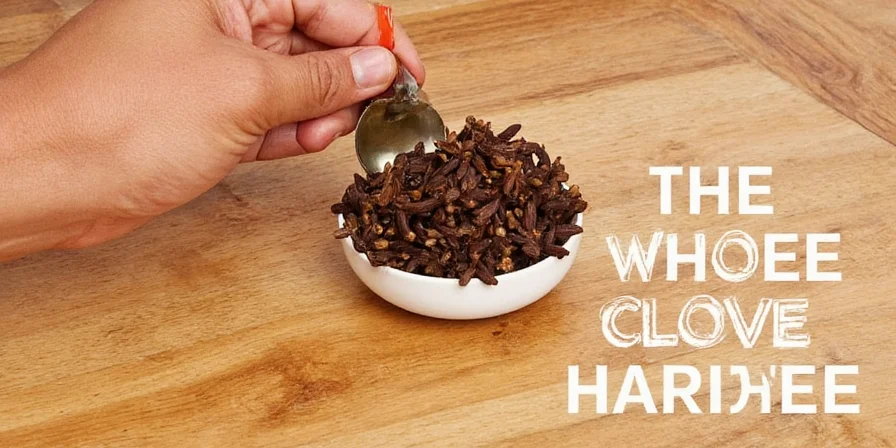The Whole Clove Chronicles: 7 Spicy Secrets, Surprising Uses & Pro Tips!
Table of Contents
- Why the Whole Clove is a Kitchen Rockstar
- What Exactly Is a Whole Clove?
- Culinary Magic with Whole Cloves
- Health Benefits That’ll Make You Say ‘Wow!’
- Pro Tips for Cooking with Whole Cloves
- How to Store Whole Cloves Like a Pro
- Whole Clove Alternatives (When You’re in a Pinch)
- Fun Facts & Historical Tidbits
- Summary: The Clove Takeaway
Why the Whole Clove is a Kitchen Rockstar
If spices had a red carpet, the whole clove would be walking it like Meryl Streep. It’s got history, flair, and flavor that punches way above its weight. But let’s be real — most of us just grab the jar when we're making mulled wine or gingerbread and call it a day.
But here’s the secret: Cloves are more than just a holiday spice. From ancient medicine cabinets to modern kitchens, they’ve been turning heads and warming bellies for centuries. In this article, we’re diving into everything you ever wanted to know (and maybe some stuff you didn’t) about whole cloves.
What Exactly Is a Whole Clove?
Contrary to what your nose might tell you, a whole clove isn’t a piece of wood — it’s actually the dried flower bud of the Syzygium aromaticum tree, native to Indonesia. Yep, that hard, nail-shaped thing was once a blossoming beauty.
Here's a quick visual comparison:
| Form | Description | Best For |
|---|---|---|
| Whole Cloves | Dried buds, intense aroma, used as-is or infused | Cooking, infusion, DIY projects |
| Ground Cloves | Powdered version, stronger flavor | Baking, marinades, sauces |

Culinary Magic with Whole Cloves
You might think of cloves as “that thing in ham” or “the toothache remedy from grandma’s time,” but their culinary applications are surprisingly wide-ranging. Let’s break it down:
- Infusions: Use whole cloves to infuse milk, wine, or broths. They pair beautifully with cinnamon, orange zest, and allspice.
- Marinades: Stick a few cloves into an onion half and simmer for an aromatic base to meat dishes.
- Baking: Clove-spiked pumpkin pie? Yes please! Especially popular in holiday recipes.
- Rice Dishes: A staple in Indian biryanis and Middle Eastern pilafs.
- Spice Blends: Found in garam masala, Chinese five-spice, and ras el hanout.
Health Benefits That’ll Make You Say ‘Wow!’
Forget essential oils for a second — cloves have real medicinal street cred. Ancient healers used them for everything from bad breath to stomach bugs. Modern science backs up some of those claims too:
- Eugenol: The main compound in cloves, known for its anti-inflammatory and antimicrobial properties.
- Antioxidant Powerhouse: Cloves contain antioxidants like quercetin and kaempferol.
- Toothache Relief: Eugenol is still used in dentistry today as a natural pain reliever.
- May Improve Insulin Sensitivity: Some studies suggest cloves can help regulate blood sugar levels.
- Anticancer Potential: Preliminary research shows eugenol may inhibit tumor growth (though definitely not a replacement for treatment).

Pro Tips for Cooking with Whole Cloves
Chefs swear by these little guys — but only if you use them right. Here are some tricks from the pros:
- Don’t overdo it: Clove has a bold, almost numbing effect. A little goes a long way.
- Use a sachet: Tie whole cloves in cheesecloth for easy removal after cooking.
- Poke and roast: Insert whole cloves into oranges or onions before roasting — a great addition to Christmas hams.
- Steep smart: Add whole cloves to tea or cider blends for a warming kick.
- Toast for depth: Lightly toast whole cloves in a dry pan before grinding to enhance flavor (yes, you can grind them!).
How to Store Whole Cloves Like a Pro
Good news: Whole cloves are shelf-stable for ages — but like all spices, they do best when stored properly. Here’s how to keep them fresh:
| Storage Method | Shelf Life | Notes |
|---|---|---|
| Airtight container at room temp | 2–3 years | Keep away from sunlight and moisture |
| Refrigerator | Up to 4 years | Great for bulk storage |
| Freezer | 5+ years | Flavor locked in forever |

Whole Clove Alternatives (When You’re in a Pinch)
So you’re halfway through your pot of coq au vin and realize… no cloves! Don’t panic. Try one of these stand-ins:
- Ground cloves: Use sparingly — usually 1/3 the amount called for whole cloves.
- Allspice: Close in flavor and works well in both sweet and savory dishes.
- Nutmeg: Milder and sweeter, good in baked goods.
- Cinnamon: Not a direct swap, but adds warmth and depth.
- Pumpkin pie spice: A ready-made blend with clove-like notes.
Fun Facts & Historical Tidbits
Let’s get nerdy for a sec. Cloves aren’t just tasty — they have a wild backstory:
- In ancient China, courtiers used cloves to freshen their breath before speaking to the emperor.
- Cloves were so valuable during the Age of Exploration that wars were fought over control of the Spice Islands.
- The Dutch tried to monopolize the clove trade by killing clove trees outside their colonies — yikes.
- Today, Madagascar and Zanzibar are major producers of cloves.
- Cloves are sometimes called “the king of spices” because of their historical importance and strong aroma.

Summary: The Clove Takeaway
Whether you’re spicing up a stew, brewing holiday cider, or trying to avoid a toothache, the humble whole clove deserves a spot in your pantry. Versatile, powerful, and packed with flavor, it’s one of those old-school ingredients that never goes out of style.
So next time you reach for that tiny jar on the spice rack, remember — you’re holding a tiny powerhouse of flavor, history, and healing power. Clove yourself in confidence and cook like a pro!











 浙公网安备
33010002000092号
浙公网安备
33010002000092号 浙B2-20120091-4
浙B2-20120091-4